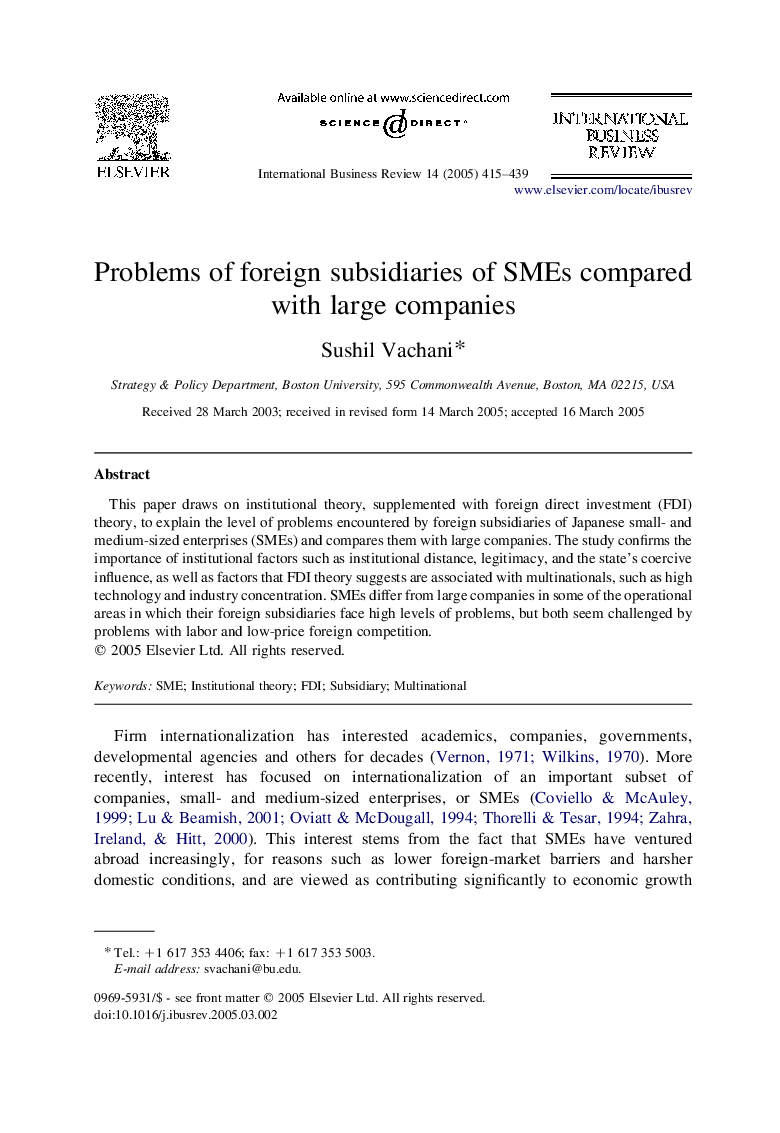| Article ID | Journal | Published Year | Pages | File Type |
|---|---|---|---|---|
| 10488759 | International Business Review | 2005 | 25 Pages |
Abstract
This paper draws on institutional theory, supplemented with foreign direct investment (FDI) theory, to explain the level of problems encountered by foreign subsidiaries of Japanese small- and medium-sized enterprises (SMEs) and compares them with large companies. The study confirms the importance of institutional factors such as institutional distance, legitimacy, and the state's coercive influence, as well as factors that FDI theory suggests are associated with multinationals, such as high technology and industry concentration. SMEs differ from large companies in some of the operational areas in which their foreign subsidiaries face high levels of problems, but both seem challenged by problems with labor and low-price foreign competition.
Related Topics
Social Sciences and Humanities
Business, Management and Accounting
Business and International Management
Authors
Sushil Vachani,
